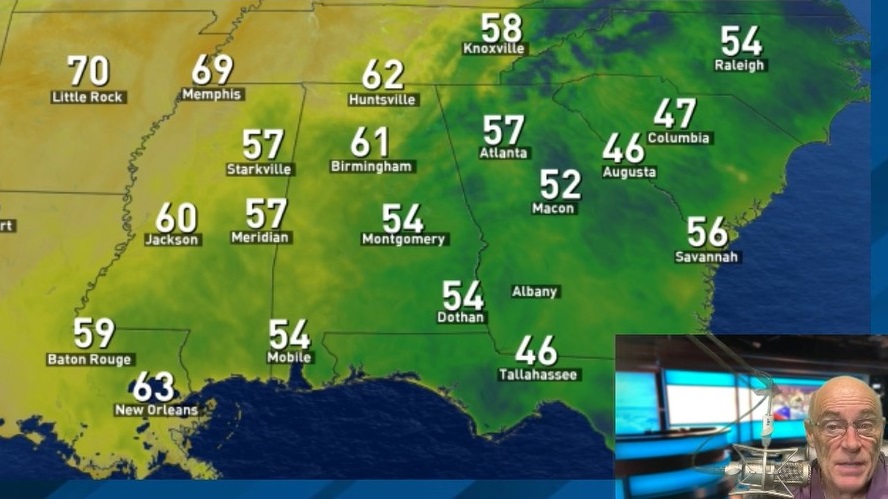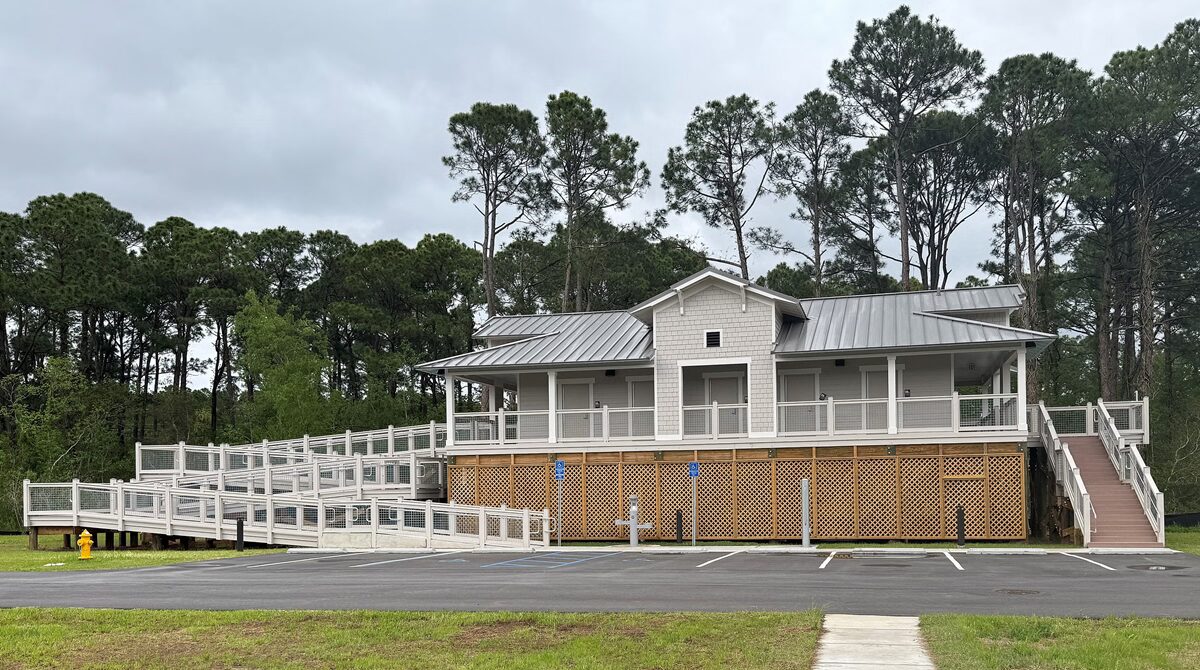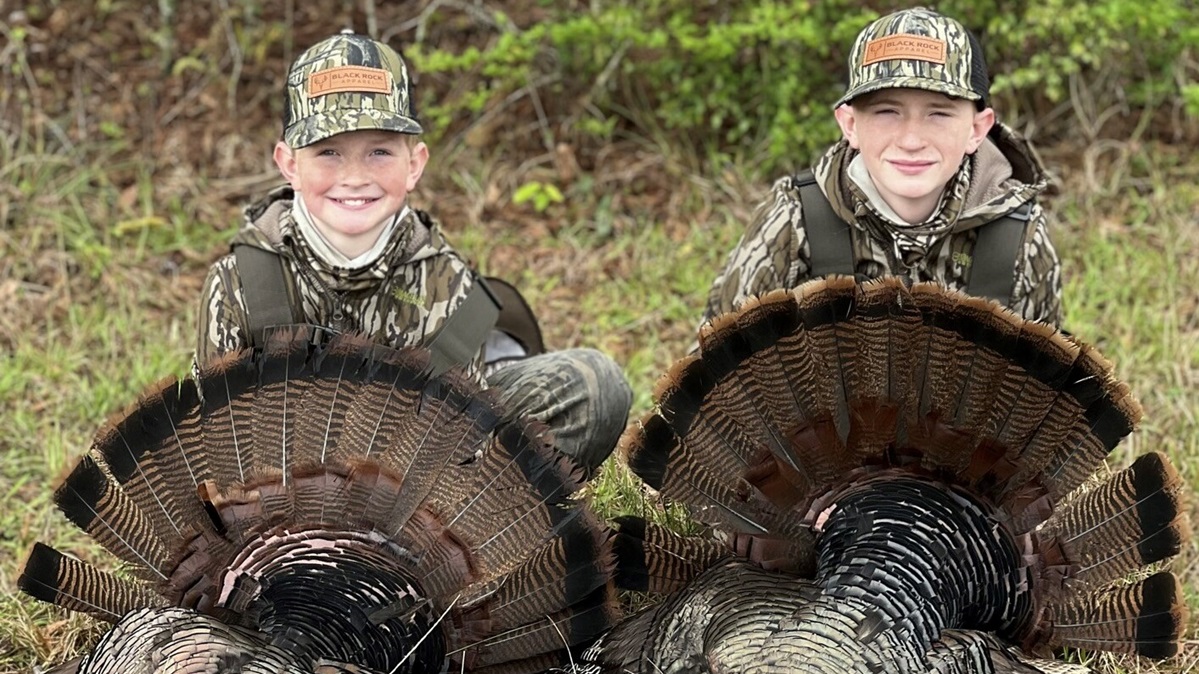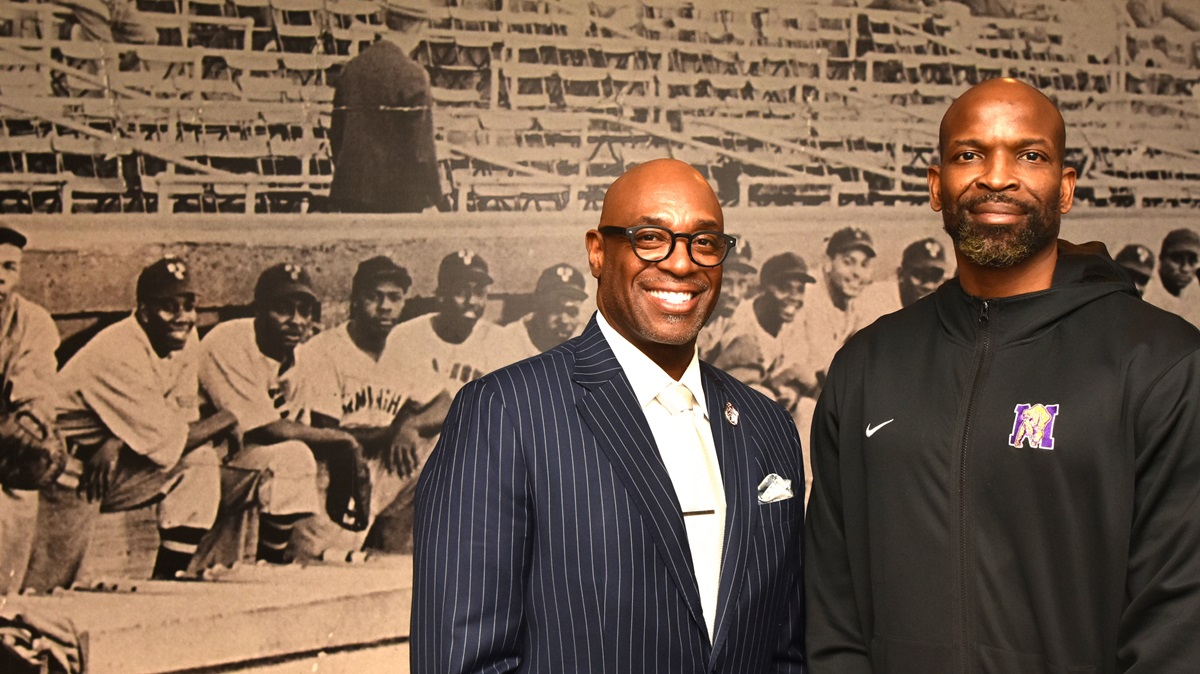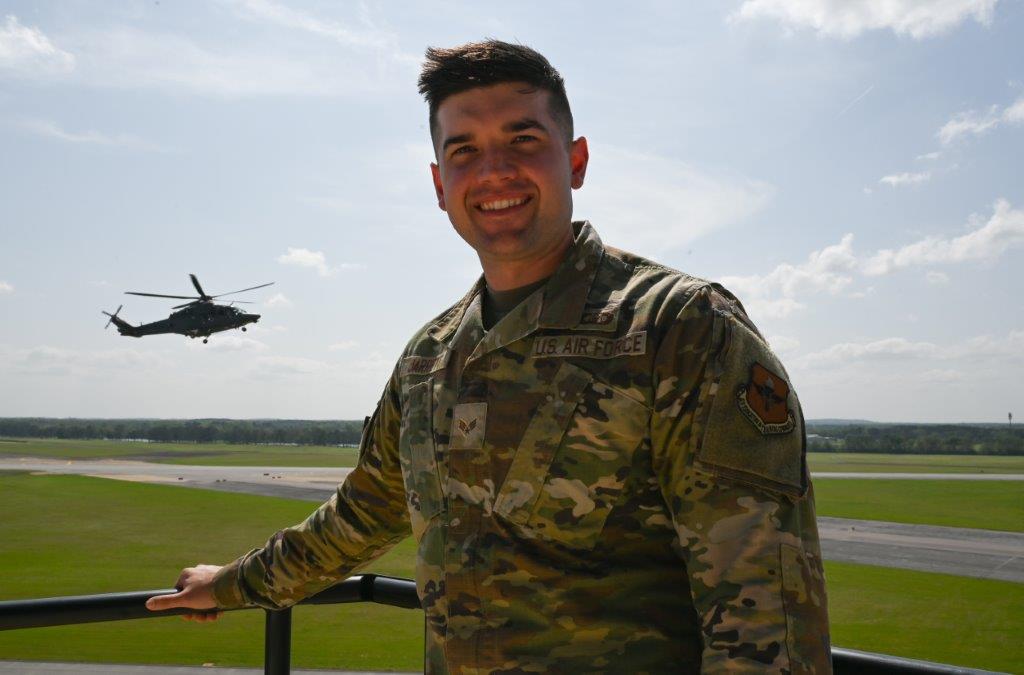Birmingham’s Small Stages brings live music into private homes, businesses

Mark Westfall, Shannon Parker and David Bernard are among the key players in Small Stages, a nonprofit that stages concerts in houses around Birmingham. (Nik Layman/Alabama NewsCenter)
When Shannon Parker recounts her first exposure to Small Stages a few years back, her face radiates unbridled joy.
“A dear friend of mine that I’ve known for a number of years started telling me about going to these crazy things called house concerts,” Parker says. “And it sounded all strange and weird to me at first. She continued to be excited about it, so I finally tried it and was just completely blown away.”
Parker remembers the “bizarre experience” of stepping into a stranger’s house strewn with people.
“You walk into someone’s home and you’re draping all over their furniture with people you don’t know,” she says. “We’d never heard of the artist, either, and she was right there. Her dog was right there. We saw her at the refrigerator at the break and talked to her, like a real person.”
Parker, a certified public accountant, was so moved by seeing singer-songwriter Jennifer Daniels (with dog Bob Marley) that she became not just a regular at Small Stages shows but treasurer of the Birmingham nonprofit’s board.
Small Stages, founded in January 2007, hosts about eight or nine concerts a year in people’s homes and sometimes in businesses in the Birmingham area. Small Stages is affiliated with and obtained nonprofit status through the North American Folk Music & Dance Alliance.
House shows presented by nonprofits like Small Stages are exempt from having to pay royalties for music performed in a public setting. That’s critical to their ability to succeed, according to David Bernard, one of the founders of Small Stages and its president.
Cereus Bright
Small Stages’ next show is Friday, July 15, when it hosts Cereus Bright, a folk band that lists Bob Dylan, Damien Rice, Wilco and The Band as influences. Cereus Bright has opened recently for high-profile acts such as Sturgill Simpson, the Lone Bellow and Jackie Greene. (Visit www.smallstages.com for more information.)
After almost a decade of shows, Bernard still delights in the shows and what it takes to put them on. For him, those shows are more than just a night of good music and a chance to meet newcomers and visit with the regulars who attend almost every show.
“This is my therapy for my day job,” says Bernard, a professor of pediatrics at UAB and an emergency room and child abuse pediatrician at Children’s of Alabama.
“I love listening to songwriter music and seeing the way artists work out life’s challenges in song and in lyrics,” he says. “There are lots of stories that I deal with that I’m happy to forget by listening to other stories.”
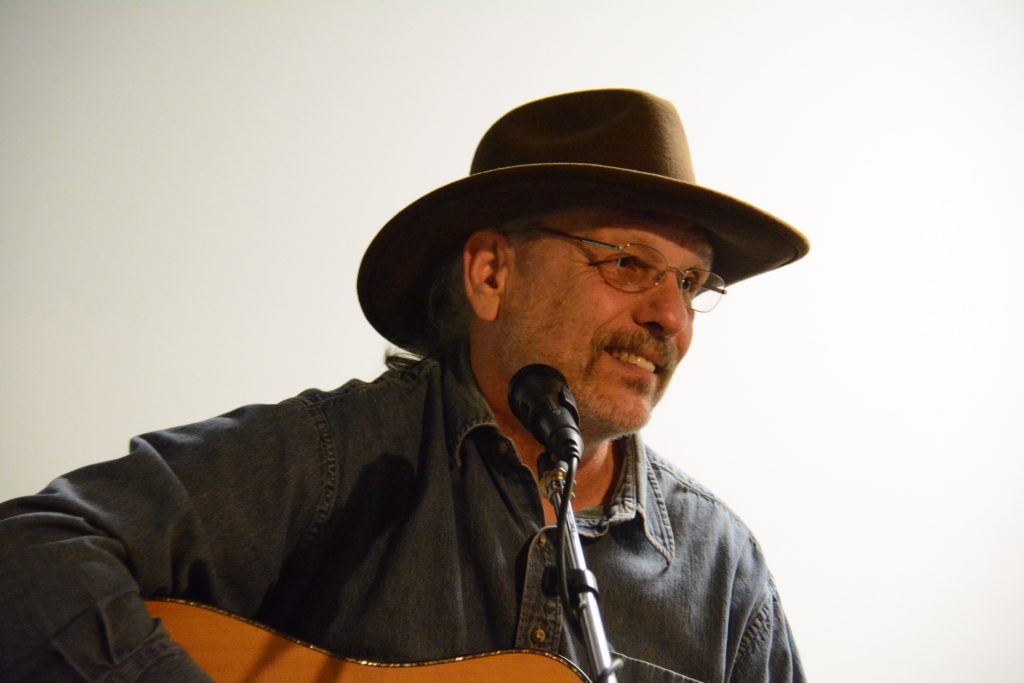
Steve Norris, co-founder and vice president of Small Stages. (contributed)
For board secretary Mark Westfall, a Homewood psychiatrist, Small Stages actually dovetails nicely with his job.
“Connecting with people’s emotions is really important to what I do. And music is a great direct connection to emotion,” he says. “To me, it’s a continuation of my day job. I just like getting in people’s … inner emotions. I feel like I help to do that by helping to put on these shows.”
Steve Norris, who founded Small Stages with Bernard, is the board’s vice president. For him, the shows are as much about the relationships he forms as they are the music. And he’s a musician.
“I get to meet some pretty cool musicians and we have some pretty cool people who come to the shows,” says Norris, who runs the Small Stages website. “You build relationships. It’s almost like we have our own little social group, or something.”
That social group typically will be about 50 people, half of whom attend just about every show. Everyone who attends is asked to make a donation of at least $15 (cash only).
Traditionally, the artist is guaranteed $300. If donations exceed that amount, Small Stages takes $50 for expenses and $75 for sound, if needed. All donations beyond that go to the artist, as do all CD and merchandise sales, Bernard says.
‘A toe in the door’
“Really, the mission is all about the artist,” Westfall says. “The goal is to help up-and-coming singer-songwriters to get a toe in the door.”
You can find out about upcoming shows on the website or by subscribing to Small Stages’ email list (Info@SmallStages.com). To attend a show, make a reservation by emailing your name and the names of those you are bringing. Small Stages will respond with the location and other details of the show. Bring your own beverages, an appetizer or dessert if you’d like, and a small chair.
While board members are satisfied with Small Stages’ first decade of operation, there have been and continue to be a few challenges.
Just the concept of a Small Stages show can be a tall hurdle for music lovers, Parker says.
“If you’ve never done something like this, you don’t know the person’s home you’re going to and you don’t know the people that are going to be there and you don’t know the artist who’s going to be there and you don’t know the words to the songs,” she says, which makes Small Stages different from any other live music show. “What would make you go?”
What should make people want to go, she says, is the total experience – hearing the artists tell the stories behind the songs, getting to interact with them during a break or even the show, essentially become a part of the show. Norris notes that at Small Stages, attendees don’t have to worry about “the guy next to you screaming into his girlfriend’s ear or there being a television on.”
“Our shows, people come to listen to the music,” he says.
Plus, there’s the social aspect of the audience sharing food, drink and music and, over the course of several shows, getting to know each other, Bernard says. “It is just a different experience from seeing music in any other setting.”
The setting – finding enough homes in which 50 people can watch a live music show – is Small Stages’ biggest struggle, Bernard says.
“The hardest aspect is finding a suitable place to present our music. We book the artist way ahead of time and then we have to find a space that’s available that’s big enough for the crowd we think it’s going to attract,” he says. “Our challenge is we have more nontraditional businesses than we have suitable homes right now. So we worry about no longer being a house concert series.
Regardless, board members make clear the rewards – for themselves, for the people who attend the shows, and for the musicians – far outweigh whatever problems Small Stages faces.
“Part of the fun for me is putting on the show behind the scenes, getting all the things organized and seeing the audience enjoy the music,” Westfall says. “When you hit it right, you’ll know. It’s a love fest of people in the audience.”
